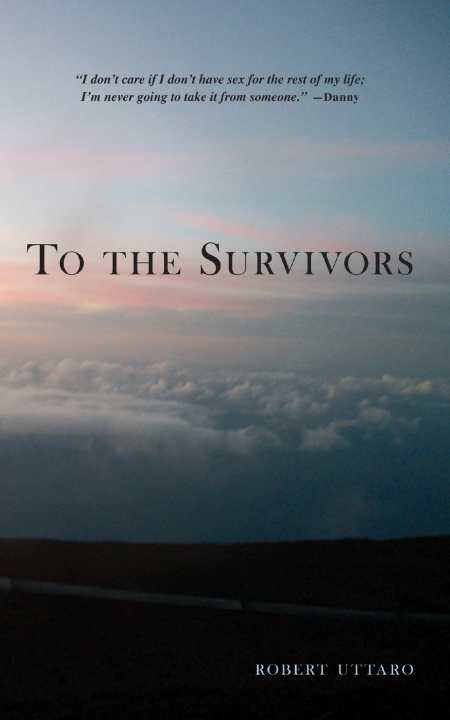To the Survivors
One Man's Journey as a Rape Crisis Counselor with True Stories of Sexual Violence
To the Survivors weaves together many candid accounts to form a brave and alarming exposé of assault.
After years of volunteering at a rape crisis center, Robert Uttaro debuts with To the Survivors, a work designed to facilitate conversations around sexual assault and recovery that alternates between introspection and brutally detailed accounts from survivors.
Uttaro’s book resists concrete categorization. Though billed as a memoir, its pages also include many recorded conversations initiated through a survivor assistance facility dubbed “the healing place.” These interviewees are a diverse group, though all exhibit willingness to speak about their experiences in unflinching detail.
Such testimonials seem to be recorded verbatim. Their stream-of-consciousness quality has the dual effect of bolstering authenticity and ensuring sometimes jagged textual moments. Uttaro elects to honor each speaker’s voice in toto, including repetition, expletives, and accents, and this preservation of individuality increases the strength of their stories.
“No one wants to be a victim,” one survivor says after detailing the many assaults she suffered but didn’t know to call “rape.” Uttaro’s interviewees effectively convey that, though assault is not a light topic, it’s one with which too many are intimately familiar.
Uttaro’s personal accounts do punctuate the work, however. He discusses coming to the crisis center unexpectedly, speaking of his work as a vocation. He insists on previous unfamiliarity with the pervasiveness of assault, and with the true horror of its implications. Throughout the work, he emphasizes his desire to impart his newfound awareness.
With education in mind, Uttaro repeats the lessons he found most meaningful: that the onus is always on the rapist; that survivors should be heard without judgment and given space to pursue recovery as they best see fit; and that we are all responsible for changing a culture that enables assault and shames victims. His sincerity is striking, if also sometimes raw in its ferocity.
Reflections on secondary topics are occasional unwieldy distractions, such as the chapter devoted to lamenting an outreach event that seemed to fall flat. Uttaro accuses an unresponsive audience of resenting his maleness, and then complains that their later refusal to produce a volunteer reflected dangerous impassivity. Coupled with a sometimes self-congratulatory tone, these moments threaten to hinder the project.
In the end, it’s the stories of those whom Uttaro meets that stand to make the greatest impact. Their stories reflect betrayals of trust—by family members, friends, confidants, and religious leaders—as well as attacks by strangers.
There are also stories from individuals who are years into the recovery process, with some more hopeful forays into recovery and forgiveness offered. Religious elements in the latter chapters may alienate some, though, all in all, the book stands to offer a safe space for those who’ve suffered assault and are exploring next steps.
To the Survivors weaves together many candid accounts to form a brave and alarming exposé of assault. It is a worthwhile, eye-opening project.
Reviewed by
Michelle Anne Schingler
Disclosure: This article is not an endorsement, but a review. The publisher of this book provided free copies of the book and paid a small fee to have their book reviewed by a professional reviewer. Foreword Reviews and Clarion Reviews make no guarantee that the publisher will receive a positive review. Foreword Magazine, Inc. is disclosing this in accordance with the Federal Trade Commission’s 16 CFR, Part 255.

